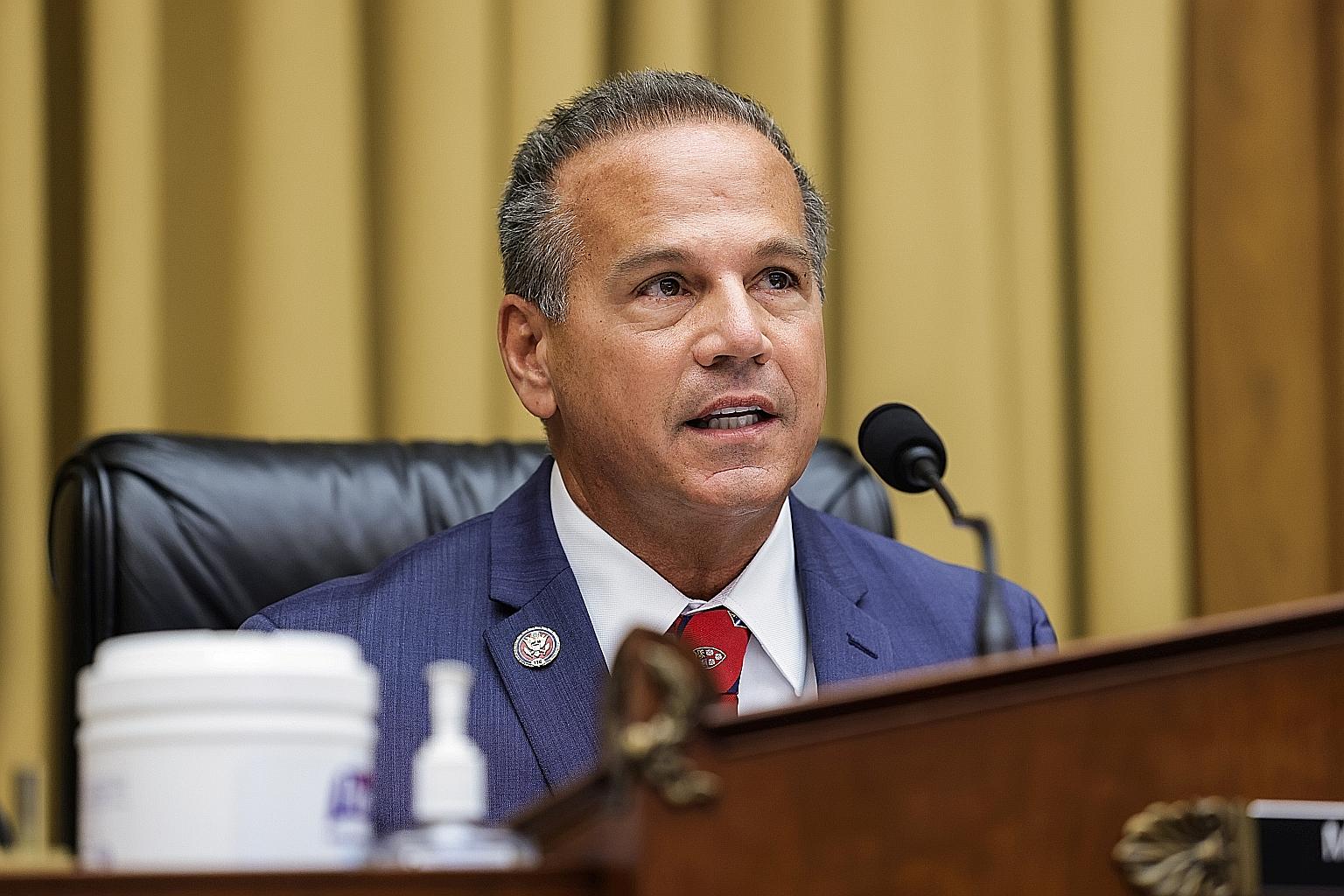Big tech abuses gatekeeper power, says US lawmaker
Head of House antitrust panel poised to propose changes to rein in tech giants
Sign up now: Get ST's newsletters delivered to your inbox

The tech giants have "ultimately bought out, copied, or cut off their competitive threats", says Mr David Cicilline.
WASHINGTON • Alphabet's Google, Amazon.com, Apple and Facebook abuse their power as gatekeepers of the Internet, said the head of a House of Representatives antitrust panel who is set to propose legislative changes to rein in the technology giants.
"Each platform uses their gatekeeper position to protect their own power," said Representative David Cicilline, who chairs a House antitrust panel that has spent more than a year probing the dominance of the Internet platforms.
"By controlling the infrastructure of the digital age, they have surveilled other businesses to identify potential rivals - and ultimately bought out, copied, or cut off their competitive threats."
Mr Cicilline, who was speaking on Thursday during a hearing with experts on competition law, is preparing a final report recommending changes to the legislative and regulatory framework. That report is set to be released next week.
Republican Representative Ken Buck, who has worked closely with Democrat Mr Cicilline on the probe, told Bloomberg TV that he expects the committee's report next week.
"We've got to make sure that we keep high tech competitive so that smaller, innovative companies can compete," said Mr Buck, noting that the report could be bipartisan but he had not yet read it.
Mr Sundar Pichai, Mr Jeff Bezos, Mr Tim Cook and Mr Mark Zuckerberg testified voluntarily in July before the subcommittee.
Mr Cicilline has criticised their testimony as being evasive and non-responsive and said "they raised new questions about whether they believe their companies are beyond oversight".
Representatives from Apple, Facebook and Google did not respond to requests for comment on Mr Cicilline's remarks. Amazon declined to comment.
Among the recommendations that Mr Cicilline has floated is a prohibition against running a platform and competing on it at the same time. That would potentially bar Google from bidding in the online ad exchanges it operates or stop Amazon from providing a marketplace for independent merchants while selling its own products.
Mr Cicilline has said he wants bipartisan support for his ideas, but has not revealed whether he has Republican support for his proposals.
The Republican Party typically views changes to antitrust law sceptically. Although some of the committee's Republicans have been critical of some of the tech companies' practices, not all agree that new legislation is necessary.
"We ultimately disagree on the future of antitrust laws," said Representative Jim Sensenbrenner, the top Republican on the panel. He suggested that he wants to see improved enforcement of existing laws, but is opposed to changes that would prompt break-ups of the companies.
For decades, the Internet giants have enjoyed laissez-faire regulation in the United States, including scant antitrust enforcement of mergers. Still, they are coming under increasing attack in Washington over a range of issues including misinformation, hate speech, election meddling, and what Republicans decry as anti-conservative bias.
Federal and state antitrust enforcers are also poised to file a historic monopolisation lawsuit against Google, and additional cases could be in the pipeline, Bloomberg has reported.
The US Federal Trade Commission is also preparing a possible case against Facebook. Amazon and Apple are also facing inquiries by the federal antitrust authorities.
Witnesses at the hearing included Mr Bill Baer, a former Justice Department antitrust chief under president Barack Obama; Professor Zephyr Teachout, a law expert at Fordham University known for progressive views on antitrust; and Ms Rachel Bovard of the conservative-allied Internet Accountability Project.
Mr Baer called for Congress to pass legislation to make it easier for enforcers to stop mergers because past court rulings have made it too hard for the government to win cases. It's "nearly impossible" to stop dominant companies from buying smaller rivals that could become future competitors, like Facebook's acquisitions of Instagram and WhatsApp, he said.
BLOOMBERG


